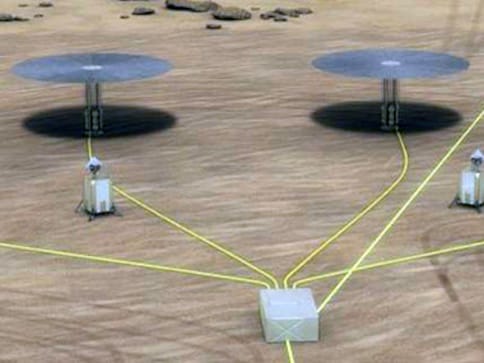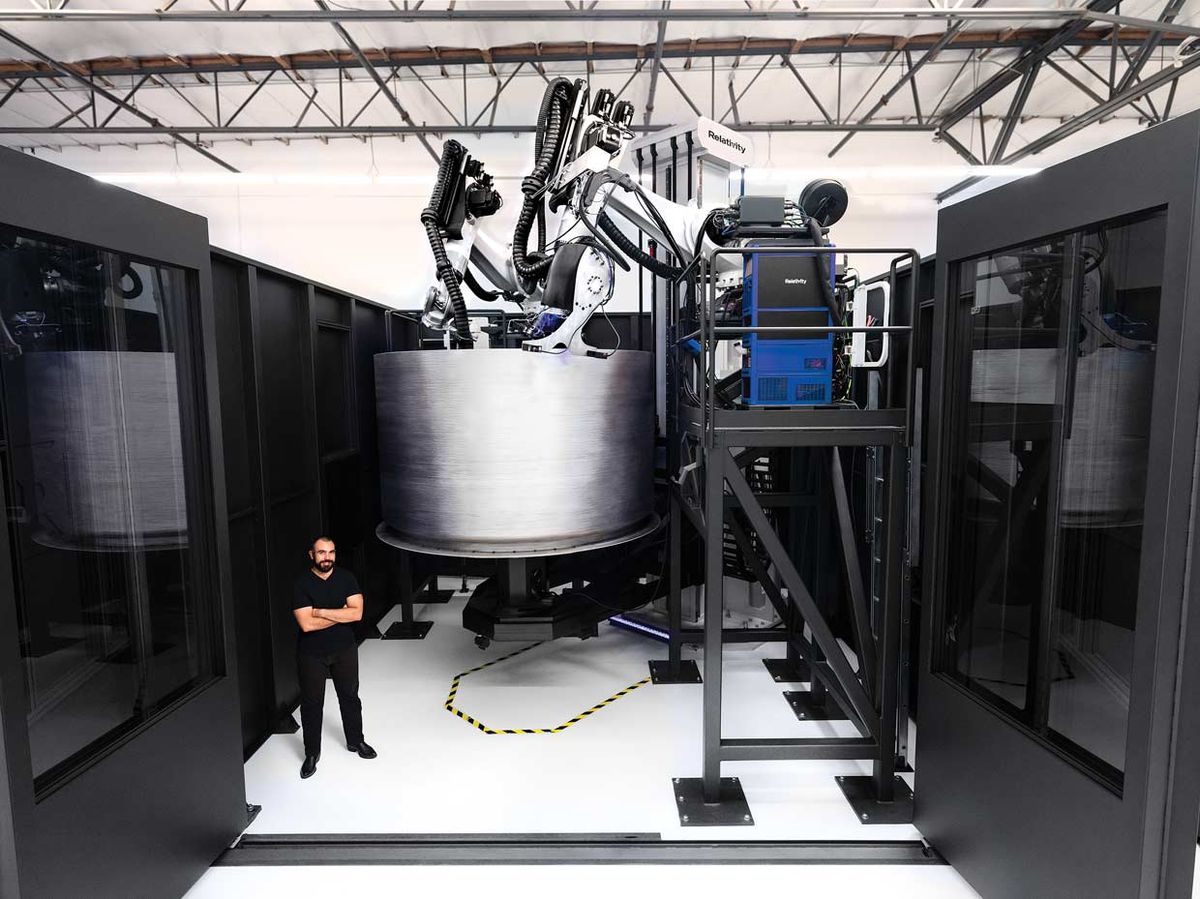New Mars Forums
You are not logged in.
- Topics: Active | Unanswered
Announcement
#1 2023-12-29 09:56:26
- tahanson43206
- Moderator
- Registered: 2018-04-27
- Posts: 23,556
KRUSTY Reactor Design pdf
NASA has published a 19 page pdf entitled: KRUST Reactor Design...
KRUSTY Reactor Design
David I. Poston, a
* Marc A. Gibson,b Thomas Godfroy,c and Patrick R. McClurea
a
Los Alamos National Laboratory, Los Alamos, New Mexico 87545
b
NASA Glenn Research Center, Cleveland, Ohio 44135
c
NASA Marshall Spaceflight Center, Huntsville, Alabama 35808
Received December 18, 2019
Accepted for Publication January 31, 2020
Abstract — The Kilowatt Reactor Using Stirling TechnologY (KRUSTY) was a reactor design, development, and test program to demonstrate the nuclear operation of a Kilopower reactor. Kilopower systems are
intended to provide between 1 and 10 kW(electric) in space, or on the surface of planets or moons, with
a clear evolution to substantially higher power systems. KRUSTY was a prototype of a 1-kW(electric) highly
enriched uranium–fueled Kilopower system. In March of 2018, KRUSTY successfully operated as a fission
power system and was the first nuclear-powered operation of any truly new reactor concept in the United
States in over 40 years. This paper discusses the design of the KRUSTY reactor along with the philosophy,
goals, and engineering work that ultimately led to KRUSTY’s success.
Keywords — Kilopower, KRUSTY, space reactor, fission power system, space nuclear power.
Note — Some figures may be in color only in the electronic version.
I. I
(th)
Online
Like button can go here
#2 2023-12-29 10:00:02
- tahanson43206
- Moderator
- Registered: 2018-04-27
- Posts: 23,556
Re: KRUSTY Reactor Design pdf
The entire 19 page pdf only takes a few minutes to download ... here is a bit more ...
Apache Internal Server Error objected .... Please consider downloading the pdf for yourself
I. INTRODUCTION
Space fission power development in the United
States has been a failure since the Systems for Nuclear
Auxiliary Power (SNAP) program in the 1960s, with
billions of dollars spent and no tangible results. The key
contributing factor to these failures was that programs
tried to take too difficult of a first step; i.e., the path to
success was not sufficiently simple. Simplicity is essential to any first-of-a-kind engineering project, which does
not necessarily mean finding the simplest design but
rather finding the simplest path through design, development, fabrication, safety, and testing.
The Demonstration Using Flattop Fissions1
(DUFF) experiment was envisioned as a simple step
to prove that a positive step, no matter how small,
could be taken to move space fission power forward.
DUFF used an existing reactor, a simple heat pipe,
a rudimentary heat exchanger, and existing Stirling
converters to produce electricity. The DUFF experiment was completed for <$1 million in <6 months
after it was first envisioned.
<snip>
NUCLEAR TECHNOLOGY · VOLUME 206 · S13–S30 · 2020
© 2020 The Author(s). Published with license by Taylor & Francis Group, LLC.
DOI: https://doi.org/10.1080/00295450.2020.1725382
S13
<snip>
S14 POSTON et al. · KRUSTY REACTOR DESIGN
(th)
Online
Like button can go here
#3 2023-12-29 10:02:21
- tahanson43206
- Moderator
- Registered: 2018-04-27
- Posts: 23,556
Re: KRUSTY Reactor Design pdf
What I was hoping to find was(is) the total mass of the system, including radiators.
If a NewMars member has time to investigate, i'd sure appreciate a post with the information.
I'm assuming the system must mass at least a ton, but it might be less. The U235 is only in the 20-30 kilogram range.
(th)
Online
Like button can go here
#4 2023-12-29 11:19:27
- SpaceNut
- Administrator
- From: New Hampshire
- Registered: 2004-07-22
- Posts: 29,967
Re: KRUSTY Reactor Design pdf
Here is the new page on the nasa site
https://www.nasa.gov/directorates/stmd/ … wer-hmqzw/
This lists the wattage and mass of the unit
https://www.nasa.gov/wp-content/uploads … _final.pdf
Kilopower overview and mission applications
https://www.nasa.gov/wp-content/uploads … 011618.pdf
2017, the KRUSTY test reactor was completed. KRUSTY is designed to produce up to 1 kilowatt of electric power and is about 6.5 feet tall (1.9 meters)
https://en.m.wikipedia.org/wiki/Kilopower
As mentioned more than one is to be sent in the realm of 4 to 5 so as to get power levels up
https://ntrs.nasa.gov/api/citations/201 … 012354.pdf
https://www.researchgate.net/publicatio … xploration
https://www.nasa.gov/?search=KRUSTY
https://ntrs.nasa.gov/api/citations/201 … 002010.pdf
Los Alamos papers
https://permalink.lanl.gov/object/tr?wh … R-16-28377
https://permalink.lanl.gov/object/tr?wh … R-17-21903
https://permalink.lanl.gov/object/tr?wh … R-15-25540
more documents are available in the NASA and DOE to test kilopower nuclear reactor for space applications topic
Offline
Like button can go here
#5 2023-12-29 11:30:51
- Void
- Member
- Registered: 2011-12-29
- Posts: 9,097
Re: KRUSTY Reactor Design pdf
Can these use Uranium?
Done
Is it possible that the root of political science claims is to produce white collar jobs for people who paid for an education and do not want a real job?
Offline
Like button can go here
#6 2023-12-29 16:00:02
- tahanson43206
- Moderator
- Registered: 2018-04-27
- Posts: 23,556
Re: KRUSTY Reactor Design pdf
For Void .... to save you the trouble of downloading the 19 page PDF provided by NASA, here is the pertinent quote:
er a product within a sustainable cost and schedule).
Figure 2 shows a schematic of KRUSTY integrated
with COMET. The KRUSTY fuel is highly enriched
uranium (HEU) U-8Mo;note that the actual weight fraction of Mo was 7.65%, which will be discussed later.
There is 32.2 kg of fuel (27.7 kg of 235U), with an outer
diameter (OD) of 11 cm and a total length of 25 cm. The
core contains a 4-cm hole to allow the insertion of a 10-
kW electric heater for nonnuclear testing and a B4C stack
during nuclear testing to simulate the flight start-up rod.
KRUSTY utilizes eight Haynes 230 heat pipes with
(th)
Online
Like button can go here
#7 2023-12-30 09:04:40
- Void
- Member
- Registered: 2011-12-29
- Posts: 9,097
Re: KRUSTY Reactor Design pdf
Thanks (th) for bothering to help me get a grasp mentally of the device.
I think that that is a lot of Uranium for Martians to procure from Mars on their own. So, I expect for years they will rely on donations from Earth for that type of nuclear power. However, the reactor parts might be possible for them to make on Mars sooner, I am guessing. For instance, Relativity Space has printing machines that they hope to build rockets with on other worlds.
Uranium may be better than Thorium on Mars as it could be dissolved in Aquifer water, but it would likely take a lot of time to get enough, I am guessing, from that source, if it exists.
https://spectrum.ieee.org/the-worlds-la … ut-rockets
Quote:
THE WORLD’S LARGEST 3D METAL PRINTER IS CHURNING OUT ROCKETS
Image Quote: 
But thanks again.
Last edited by Void (2023-12-30 09:08:36)
Is it possible that the root of political science claims is to produce white collar jobs for people who paid for an education and do not want a real job?
Offline
Like button can go here
#8 2023-12-30 10:04:54
- SpaceNut
- Administrator
- From: New Hampshire
- Registered: 2004-07-22
- Posts: 29,967
Re: KRUSTY Reactor Design pdf
Void the posted quote above your post clearly indicates
There is 32.2 kg of fuel (27.7 kg of 235U,
That said nothing since the start of this has changed and no other work has been forth coming from the initial investigation into what is feasible within the design realm.
Offline
Like button can go here
#9 2023-12-30 11:04:24
- Void
- Member
- Registered: 2011-12-29
- Posts: 9,097
Re: KRUSTY Reactor Design pdf
And so, I yielded to the notion that the Uranium has to be imported from Earth but felt that it might be possible to manufacture other parts of the KRUSTY on Mars eventually. Actually maybe those parts could be made on the Moon, involving robots such as Tesla Bot.
Done
Last edited by Void (2023-12-30 11:06:05)
Is it possible that the root of political science claims is to produce white collar jobs for people who paid for an education and do not want a real job?
Offline
Like button can go here
#10 2024-05-03 14:41:22
- SpaceNut
- Administrator
- From: New Hampshire
- Registered: 2004-07-22
- Posts: 29,967
Re: KRUSTY Reactor Design pdf
Knowing the watt hrs we need starts the process of Watts to Amps Calculator
Watt Hours to Amp Hours (Wh to Ah) Conversion Calculator
but AC is different
Offline
Like button can go here